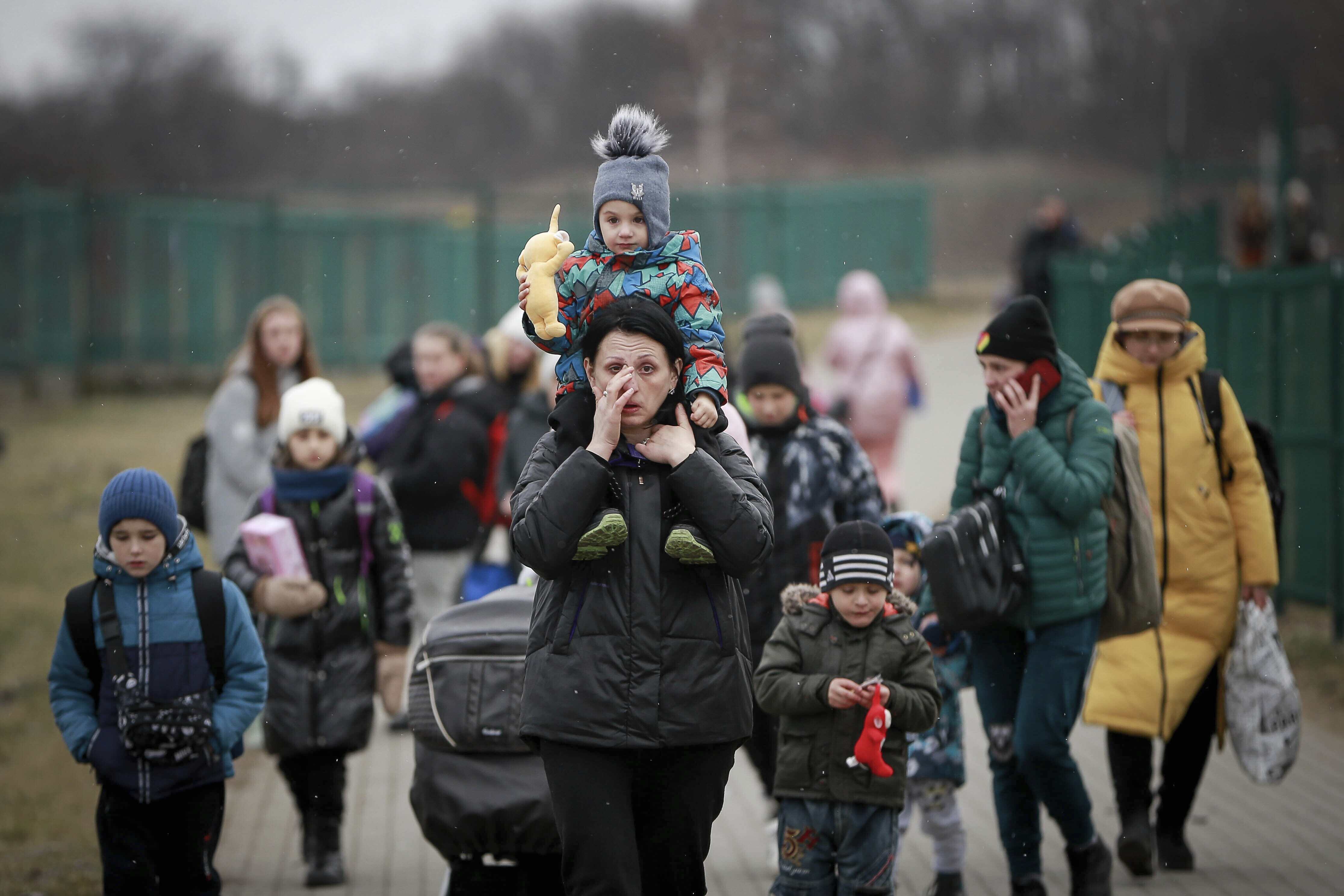Russians are blocked at US border, Ukrainians are admitted

Mexico: About three dozen would-be asylum seekers from Russia found themselves blocked from entering the U.S. on Friday while a group of Ukrainians flashed passports and were escorted across the border.
The scene reflected a quiet but unmistakable shift in the differing treatment of Russians and Ukrainians who enter Mexico as tourists and fly to Tijuana, hoping to enter the U.S. for a chance at asylum.
The Russians 34 as of Friday had been camped several days at the busiest U.S border crossing with Mexico, two days after city of Tijuana officials gently urged them to leave.
They sat on mats and blankets, checking smartphones, chatting and snacking, with sleeping bags and strollers nearby as a stream of pedestrian border crossers filed past them. Five young girls sat and talked in a circle, some with stuffed animals.
Days earlier, some Russians were being admitted to the U.S. at the San Ysidro crossing, while some Ukrainians were blocked. But by Friday, Russians were denied while Ukrainians were admitted after short waits.
It's very hard to understand how they make decisions, said Iirina Zolinka, a 40-year-old Russian woman who camped overnight with her family of seven after arriving in Tijuana on Thursday.
Erika Pinheiro, litigation and policy director for advocacy group Al Otro Lado, said the U.S. began admitting all Ukrainians on humanitarian parole for one year around Tuesday, while at the same time blocking all Russians. There was no official announcement.
A Homeland Security Department memo dated March 11 but not publicly released until Thursday told border officials that Ukrainians may be exempt from sweeping asylum limits designed to prevent spread of COVID-19. It says decisions are to be made case-by-case for Ukrainians but makes no mention of Russians.
The Department of Homeland Security recognizes that the unjustified Russian war of aggression in Ukraine has created a humanitarian crisis, the memo states.
Russian migrants in Tijuana sat off to the side of a line of hundreds of border residents waiting to walk across the border to San Diego on Friday. The line was unimpeded.
A 32-year-old Russian migrant who hadn't left the border crossing since arriving in Tijuana with his wife about five days earlier had no plans to leave, fearing he may miss any sudden opportunity.
Within hours of arriving, the migrant, who identified himself only as Mark because he feared for his family's safety in Russia, saw three Russian migrants admitted to the United States. After six hours, U.S. authorities returned his passport and said only Ukrainians were being admitted.
Ukrainians and Russians are suffering because of one man, Mark said, referring to Russian President Vladimir Putin. He fled shortly after Russia's invasion of Ukraine.
U.S. officials have expelled migrants more than 1.7 million times since March 2020 without a chance to see asylum under sweeping authority aimed at preventing spread of COVID-19. But the public health authority, known as Title 42, is seldom used for migrants of some nationalities who are difficult to expel for financial or diplomatic reasons.
But to claim asylum, migrants must be on U.S. soil and U.S. officials are blocking passage except for those it wants to admit.
Even before Russia's invasion, the United States was seeing an increase in Russian and Ukrainian asylum seekers, most trying to enter at official crossings in San Diego rather than trying to cross illegally in deserts and mountains.
More than 1,500 Ukrainians entered the U.S. on the Mexican border from September through February, according to U.S. Customs and Border Protection, about 35 times the 45 Ukrainians who crossed during the same period a year earlier.
Ukrainians who can reach U.S. soil are virtually guaranteed a shot at asylum. Only four of the 1,553 who entered in the September-February period were barred under the public health order that lets the U.S. expel migrants without a chance at humanitarian protection.
The number of Russian asylum seekers entering at U.S land crossings from Mexico surpassed 8,600 from September through February, about 30 times the 288 the same time a year earlier. All but 23 were processed under laws that allow them to seek asylum.
Mexican officials have been wary of migrants sleeping at the border. Last month they dismantled a large migrant camp in Tijuana with tents and tarps that blocked a walkway to San Diego.
Eager to stop another camp from forming, the city distributed a letter on Wednesday asking migrants to leave their campsites for health and safety reasons and offered free shelter if they couldn't afford a hotel.



